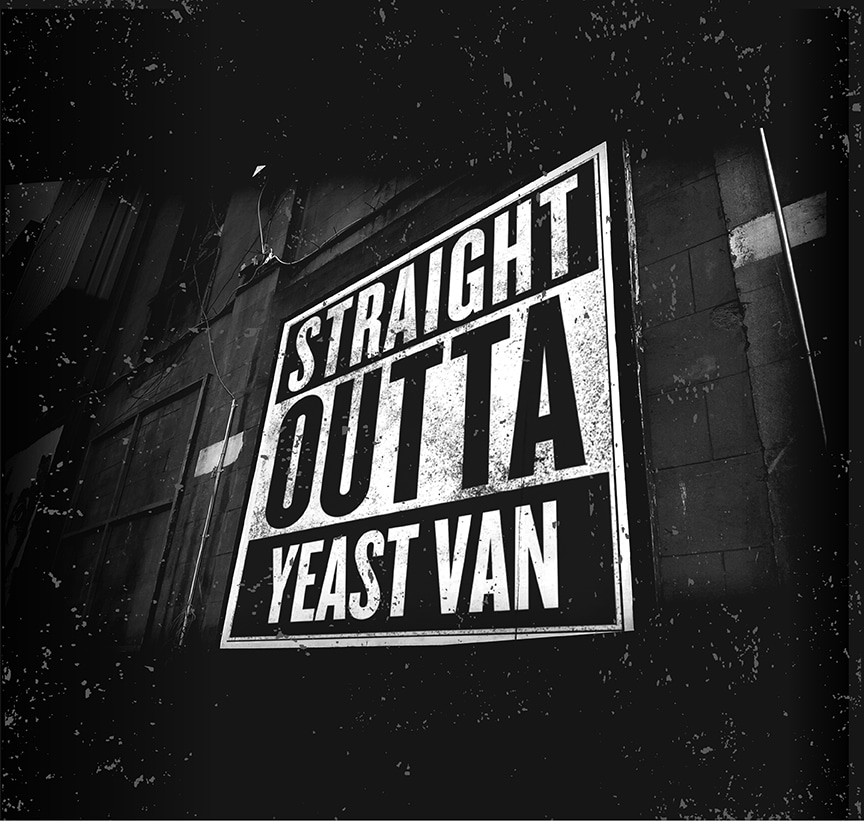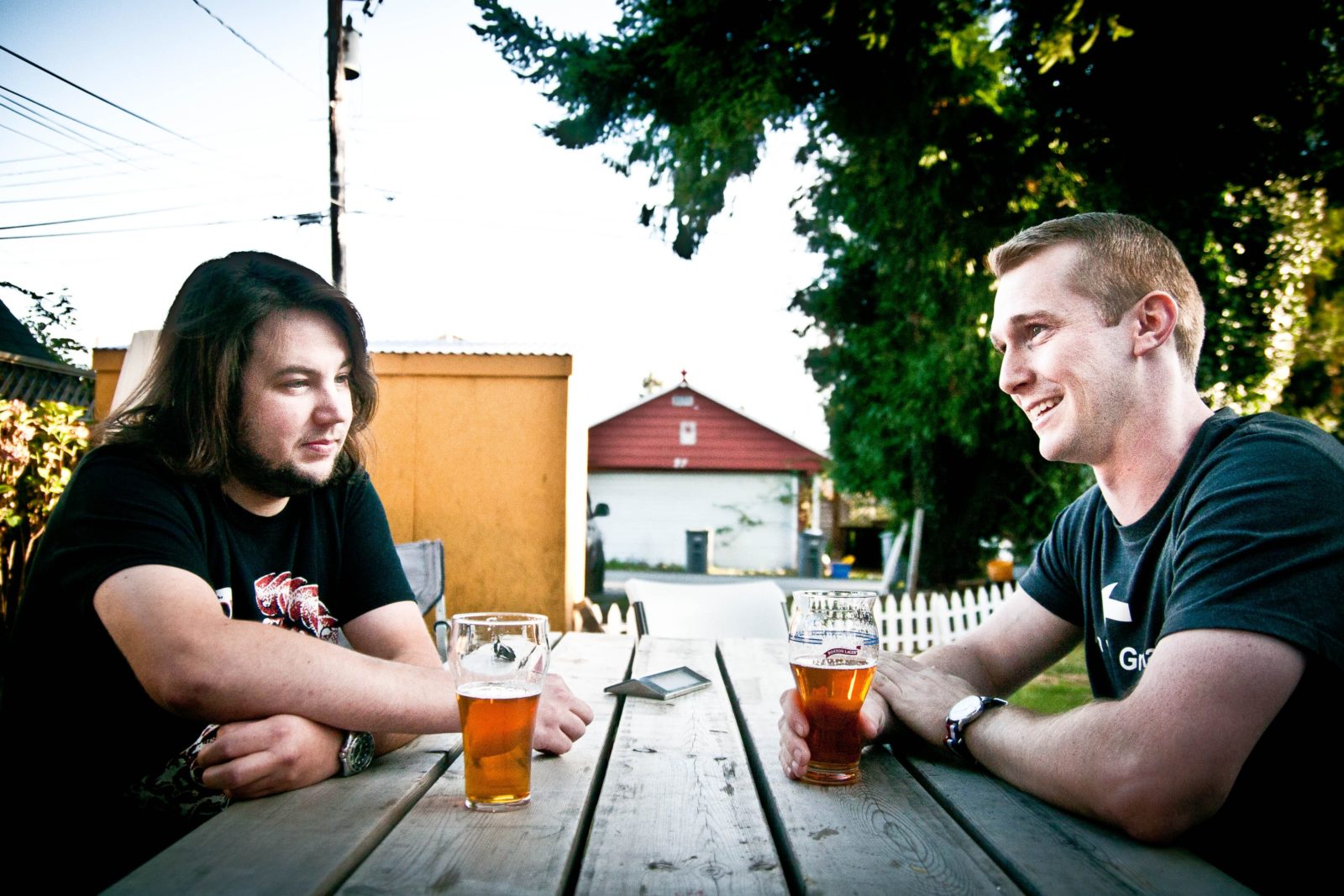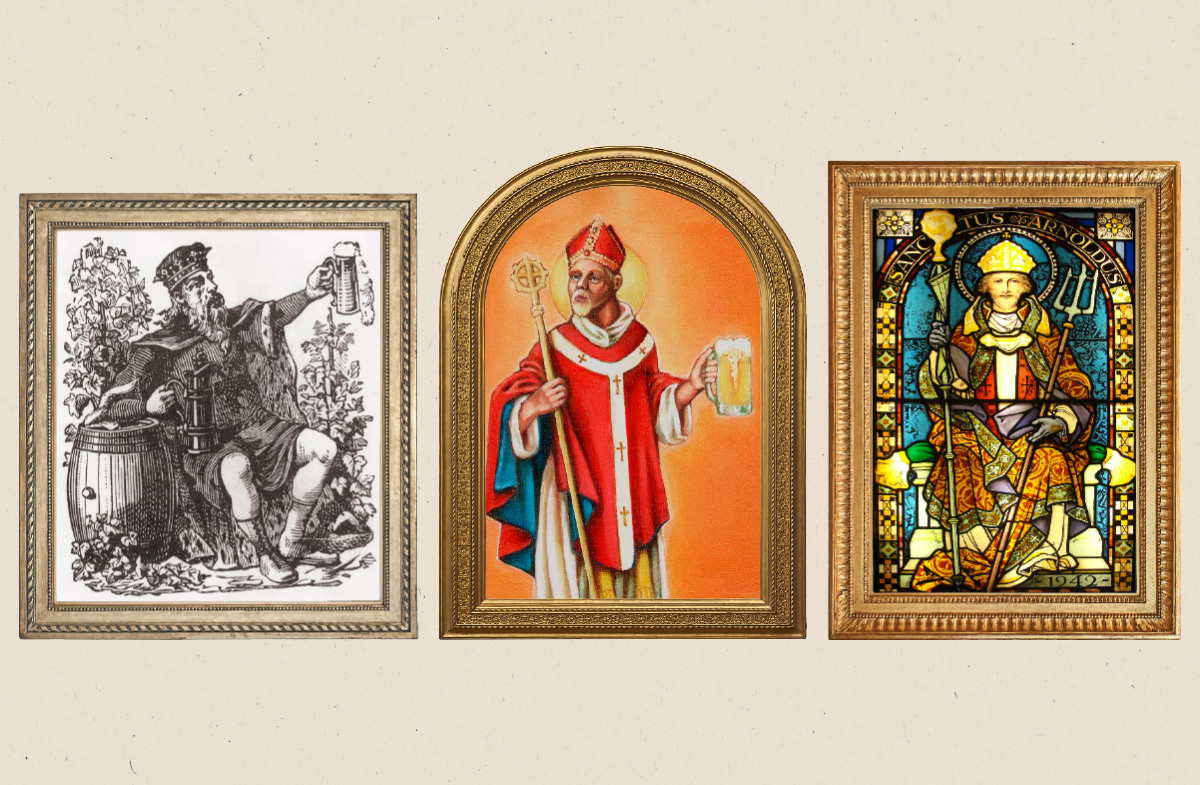
Some things in this world are universal. Beer (and beer-like beverages) are one of them.
Dating back to time immemorial, cultures in every part of the world have enjoyed getting their drink on. Some scholars even believe beer gave rise to civilization as we know it today.
Equally universal is the human inclination to attribute what isn’t immediately apparent or known, to one deity or another. Unsurprisingly, before Louis Pasteur cracked the code of microbiology to finally understand the science of fermentation, that hitherto mysterious process was the work of gods, angels or some such celestial being.
The Catholics even have an official beer blessing recognizing the heavenly provenance of the pint, dating from the 17th-century liturgical tome Roman Ritual:
“Bless, O Lord, this creature beer, which thou hast deigned to produce from the fat of grain: that it may be a salutary remedy to the human race, and grant through the invocation of thy holy name; that, whoever shall drink it, may gain health in body and peace in soul. Through Christ, our Lord. Amen.”
That’s a lot of words to just say “cheers!”
But whereas most cultures have historically designated a singular entity devoted to the brewing arts (with the notable exception of the Aztecs and their 400 Drunken Rabbit Gods), those contraceptive-hating Catholics naturally birthed a multitude of beer-loving benefactors.
There are more than a dozen Catholic saints all competing for the coveted title of “Patron Saint of Beer.” Some represent brewers or hop-pickers. Some have seemingly no connection to beer whatsoever. Some don’t even exist.
So, in order to provide some canonical clarity, let’s have a look at some of the divine drinkers contending to be the preferred pietist of the pint.
Saint Brigid of Kildare (451-525)
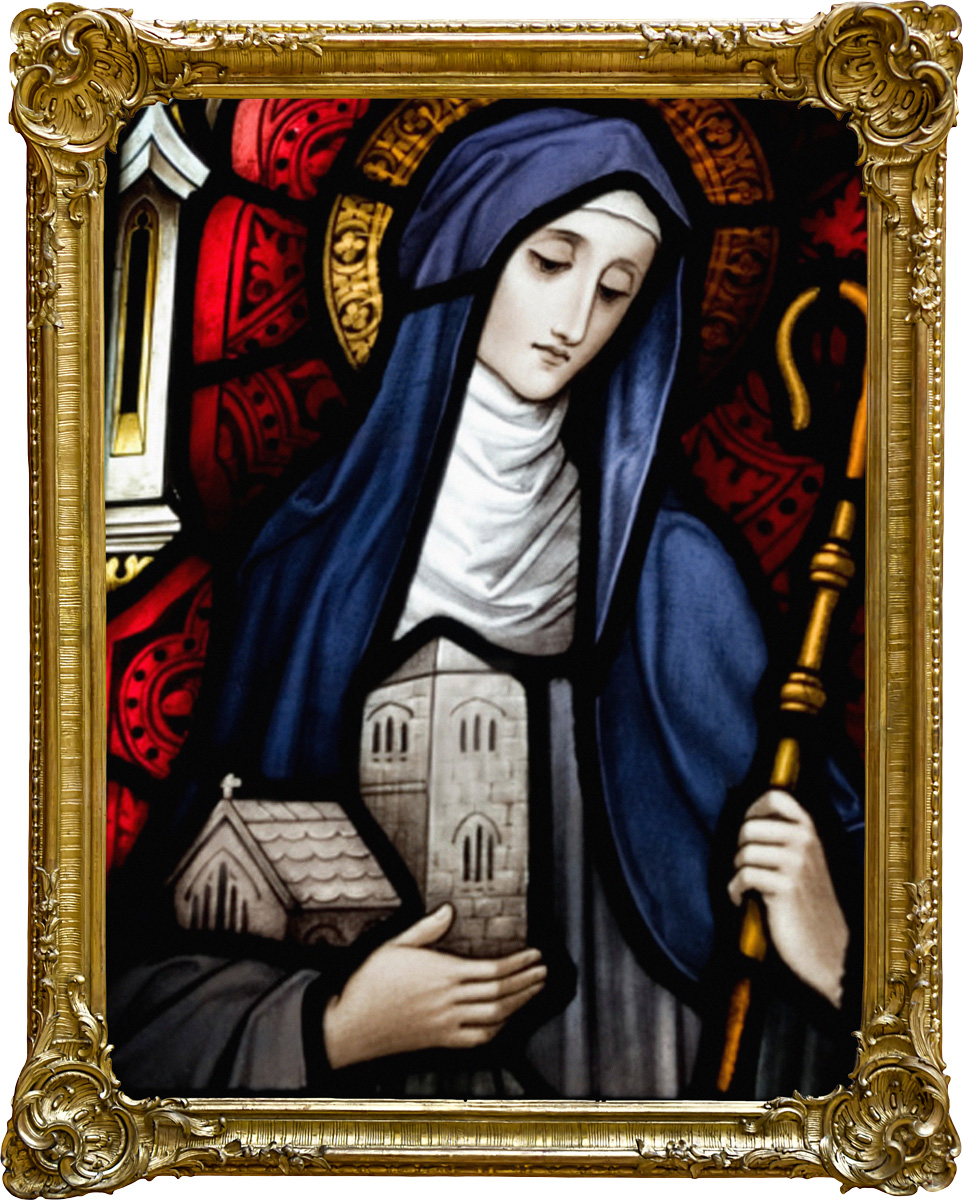
One of Ireland’s three national saints, Brigid was a bad-ass bitch who didn’t take anyone’s shit. Born into slavery, she had a habit of giving away her master’s possessions to the poor, and her apparent holiness helped earn her freedom. After vowing a life of chastity, a man mocked her, saying the beautiful Brigid would be taken as someone’s wife whether she wanted to, or not. To this, she responded by PULLING OUT HER OWN EYEBALL (don’t worry, it grew back) and said, “Would you love a blind woman as your wife? Because God would.” Then she made his eyes explode. True story. Anyways, Brigid was attributed with more than 40 miracles, including turning water into beer. So, checkmate, Jesus!
King Gambrinus
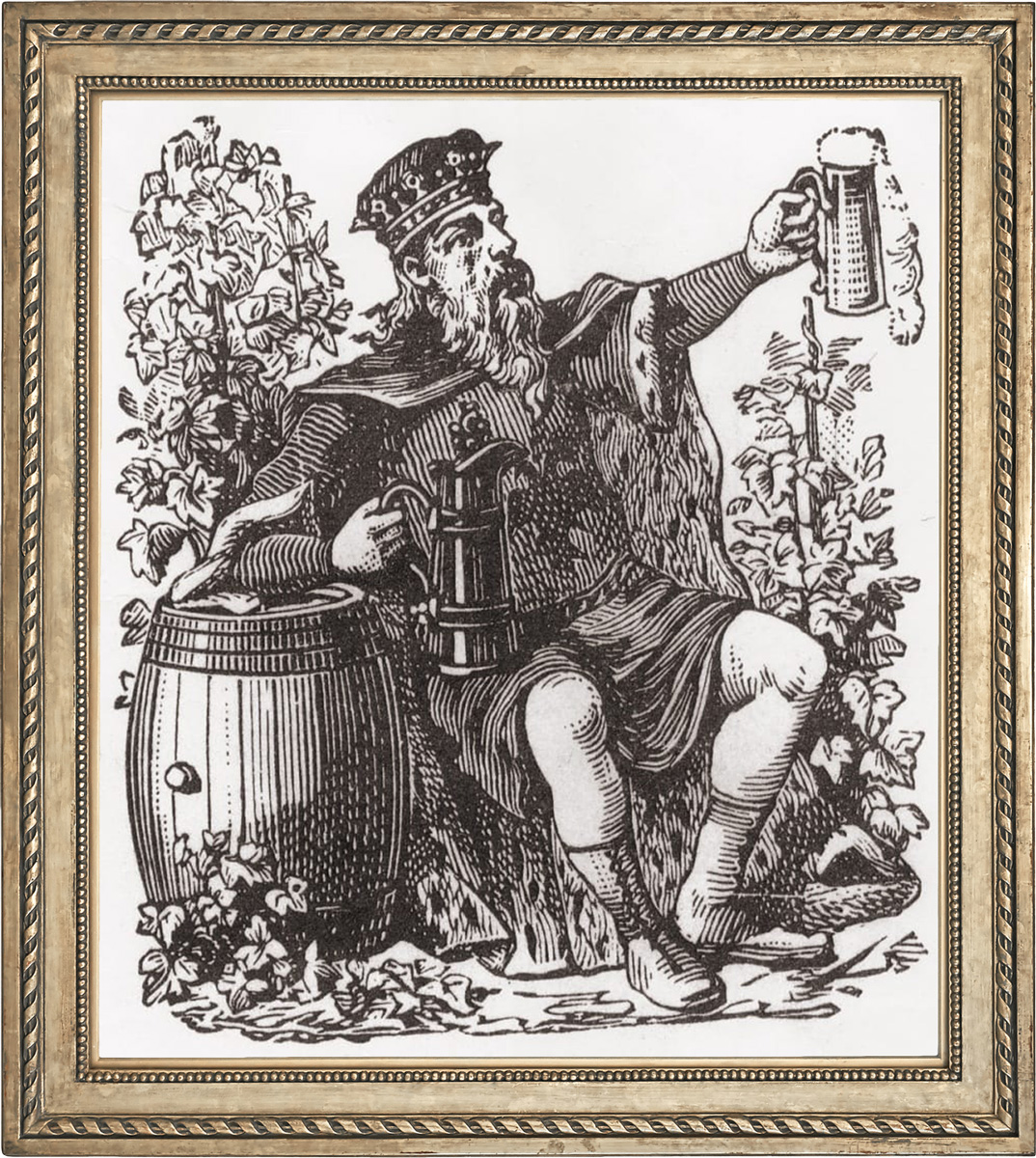
King Gambrinus has long been celebrated as the patron saint of beer and is often depicted leaning against a keg with a full, frothy flagon of suds in his hand. Indeed, Gambrinus was well-known for his beer-drinking ability, and may or may not have bested Beelzebub himself in a drinking contest. There’s only one problem, though. Gambrinus was never venerated as a saint, and, in fact, never even existed.
Saint Arnold of Metz (580-640)
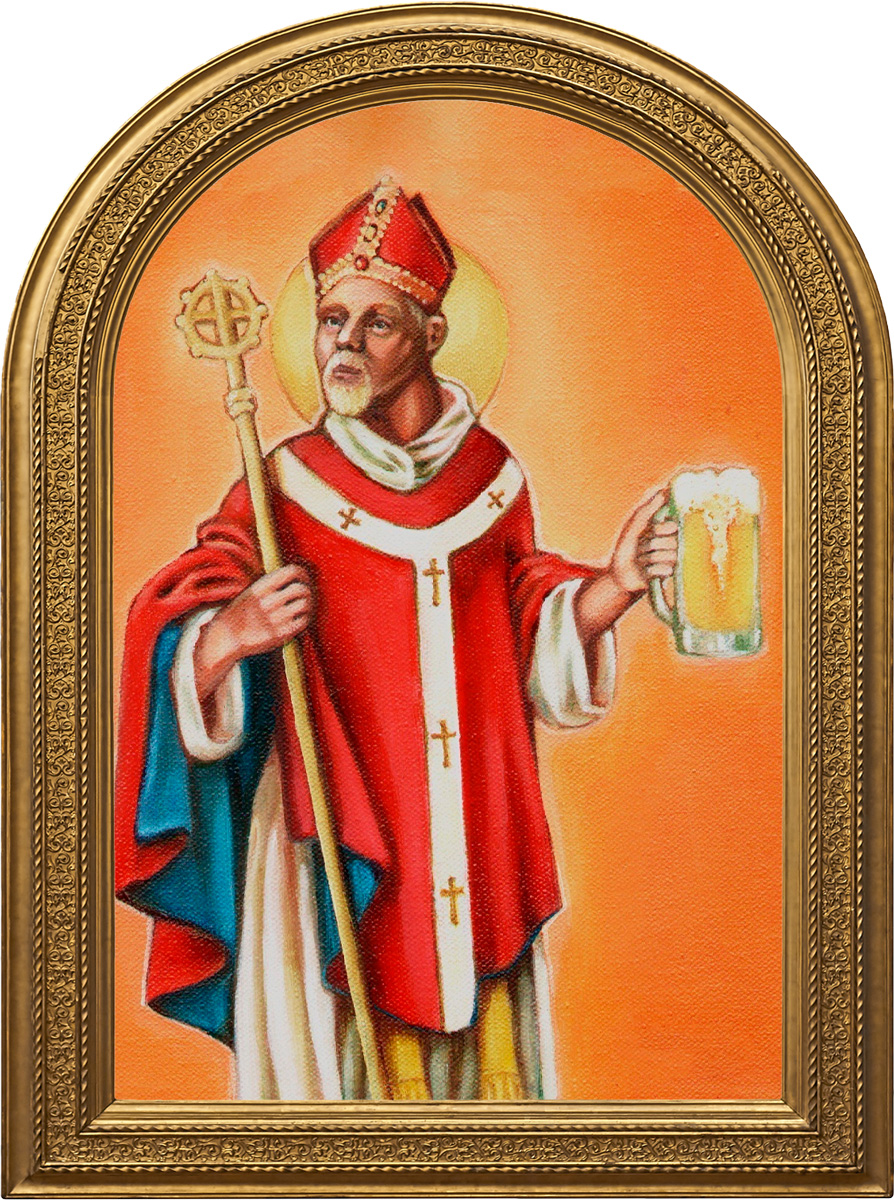
This French saint’s seventh-century decree that the masses should drink beer instead of water likely saved thousands of lives. He believed water was impure and beer was blessed and sent by God to nourish the devout. And he was partly right: Europe was reeling from the first plague pandemic, which ultimately killed 50 per cent of the population of Europe. Fouled water was helping to spread the disease and beer, because it was boiled, was demonstrably safer. According to Arnie, “From man’s sweat and God’s love, beer came into the world.” Well said.
Saint Arnold of Soissons (1040-1087)
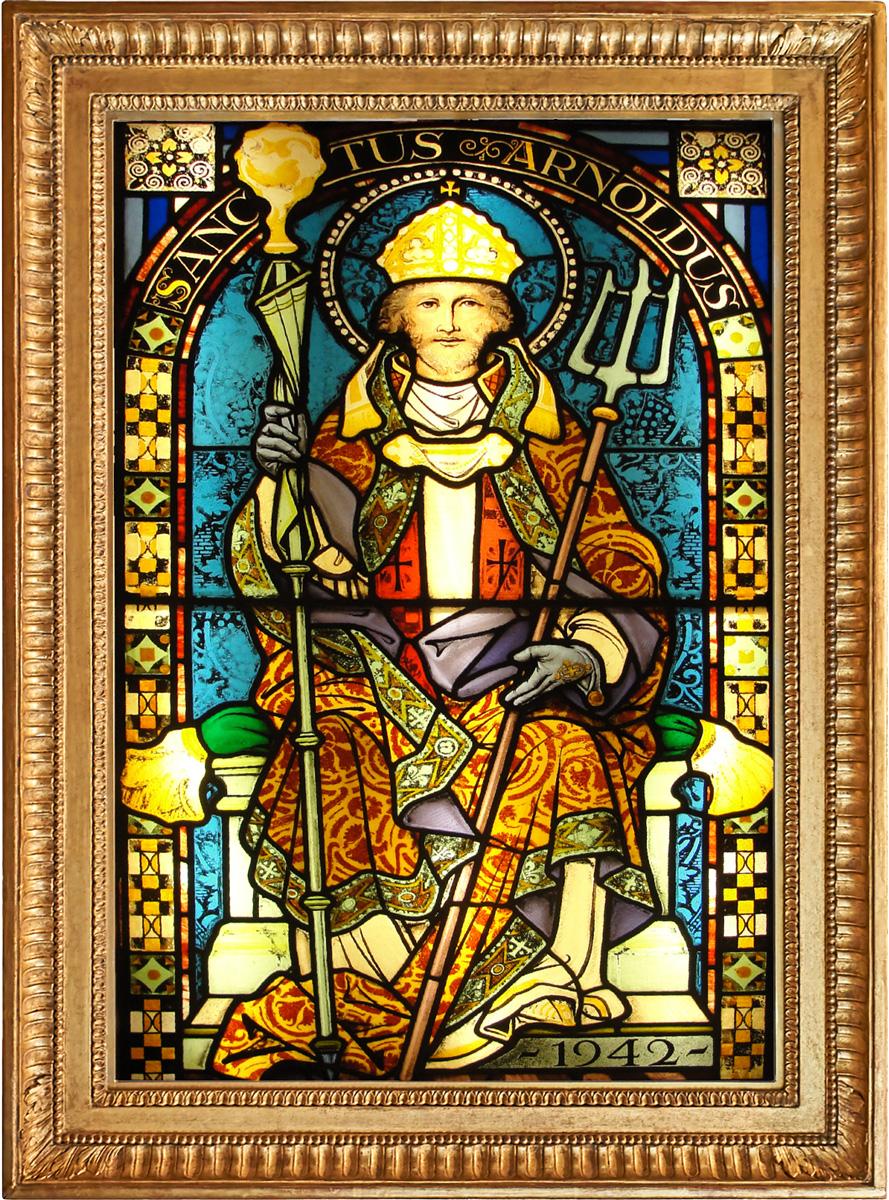
This fine Flemish fellow was a brewer at a Benedictine abbey in modern-day Belgium. Often depicted holding a mashing rake, Arnold 2.0 considered beer to be God’s “gift of health.” Much like Arnold No. 1, during an outbreak of plague, Arnold of Soissons implored the townsfolk of Oudenburg to drink beer instead of water and brewed enough beer for the entire town to drink, saving many lives.
Saint Wenceslaus of Bohemia (907-935)
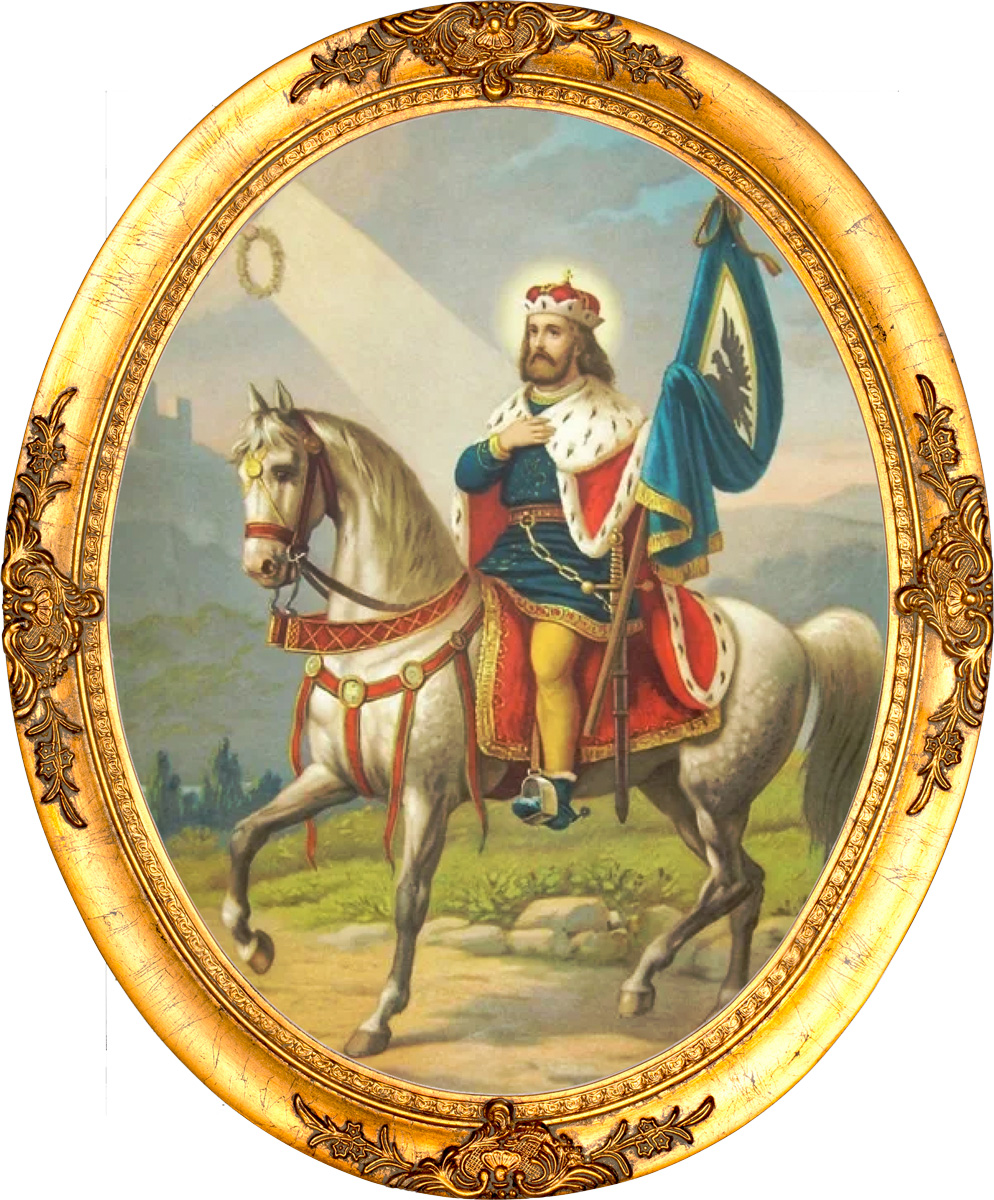
“Good King” Wenceslaus (AKA Svatý Václav in his native Czech) was actually a duke who was well known for his generosity and kindness, especially towards the poor and downtrodden. He also banned the exportation of hops from Bohemia, ensuring locals would always have a steady supply of beer. He developed an almost cult-like following in the 1800s, resulting in the Christmas carol we know and love today.
Saint Hildegard of Bingen (1098-1179)
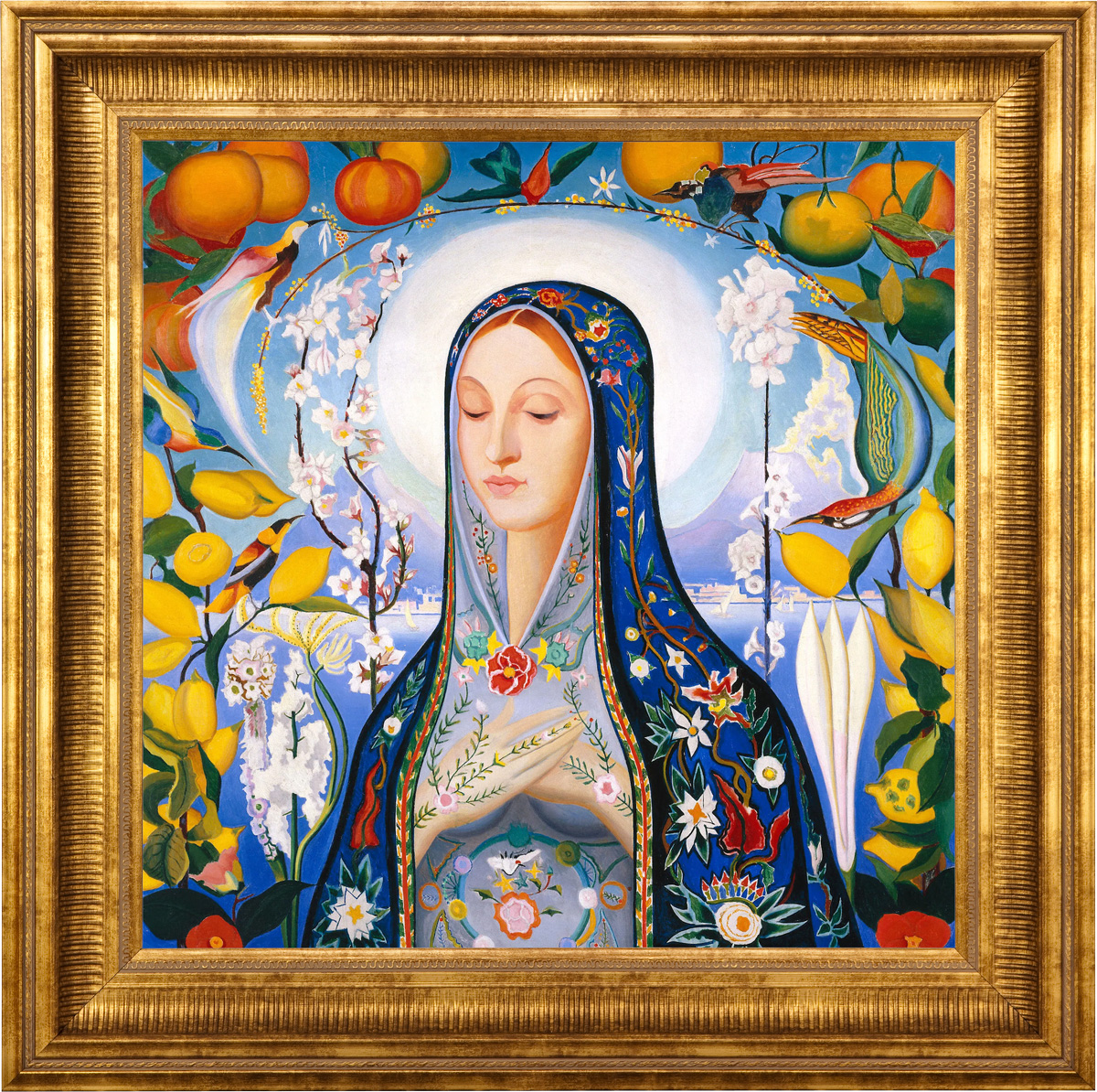
This 12th century German abbess is responsible for the earliest surviving writings on the use of hops in beer, and for that she has been venerated as an unofficial patron saint of beer. The use of hops in beer prevents spoilage and its antimicrobial properties help kill off any pathogens present. However, Hildegard’s writings may not have even been the first to recommend the use of hops in beer—hers are just the oldest historians have found.
Saint Luke the Evangelist (9-84)
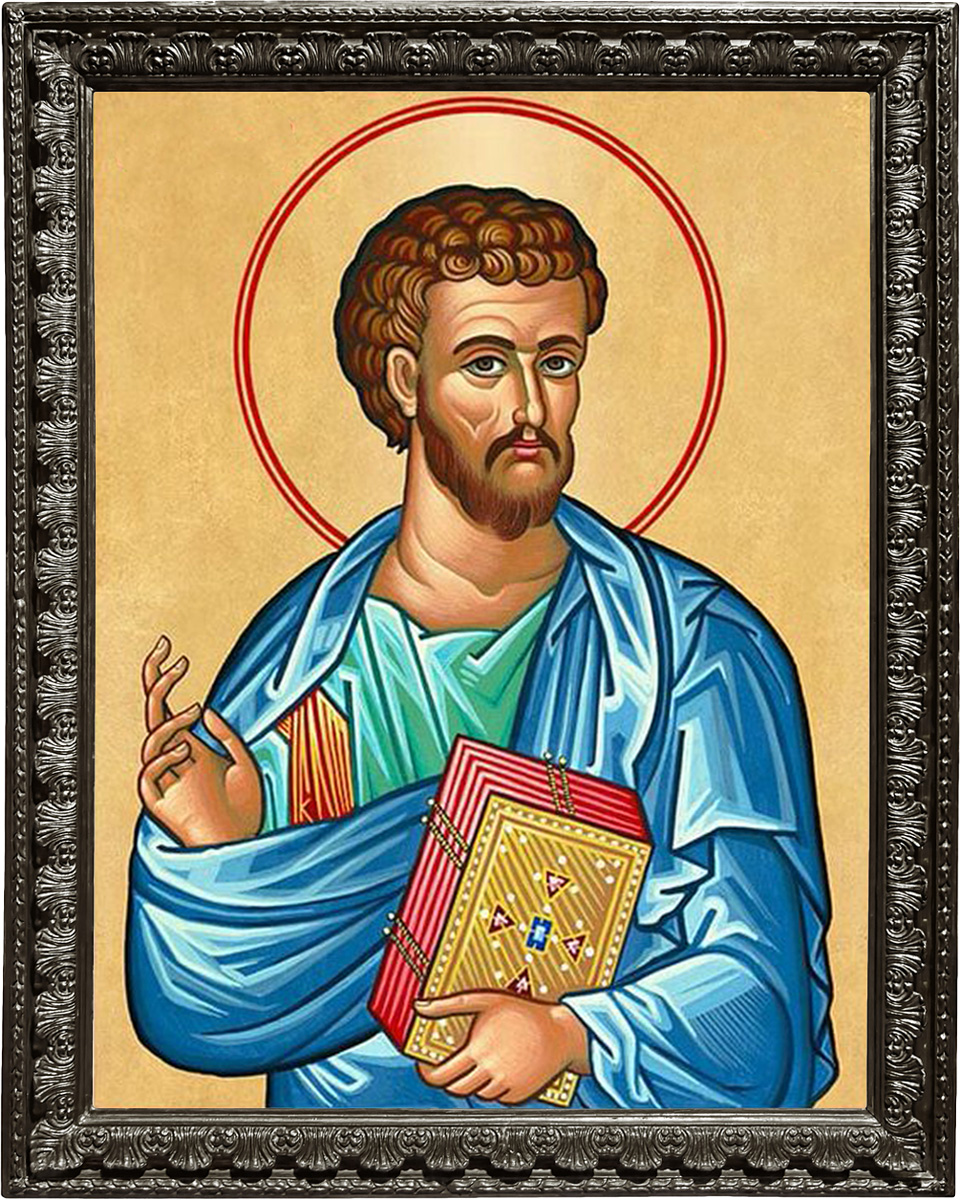
Our man Luke is one of the OG saints, having written two books of the Bible, the Gospel of Luke and Acts of the Apostles, which make up a healthy chunk of the New Testament. As far as anyone can tell, Luke had nothing to do with beer and no beer-related miracles are attributed to him. Yet for some reason, someone, somewhere decided he should be a patron saint of brewers. Go figure.
Saint Augustine of Hippo (354-439)
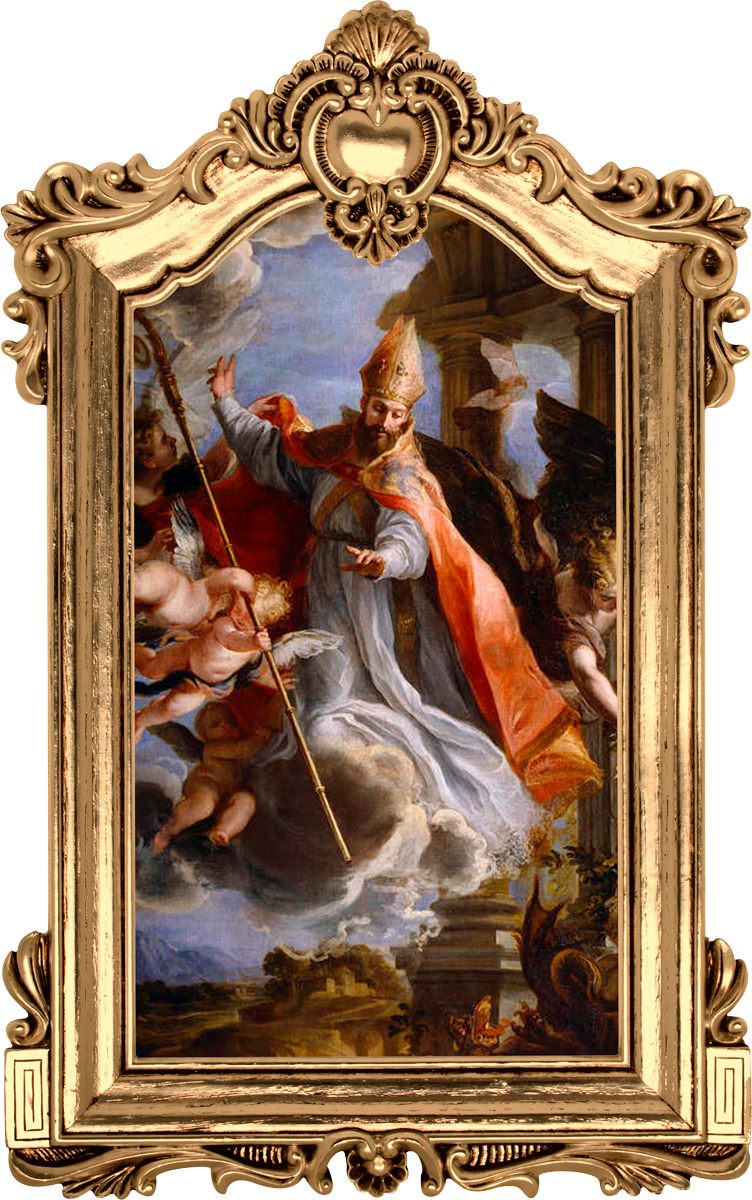
Prior to finding God, this Tunisian saint had a penchant for the good life, to put it mildly. He was a hedonist’s hedonist, whose life was essentially one long, protracted bender. He lived his 20s in a near persistent drunken stupor, made the acquaintance of many a concubine, and famously asked, “O Lord, grant me chastity and continence—but not yet!” After converting to Christianity at 31, he put away his “wicked” ways to follow God, but wrote extensively about his wild years in his autobiography, titled Confessions.
St. Nicholas of Myra (270-343)
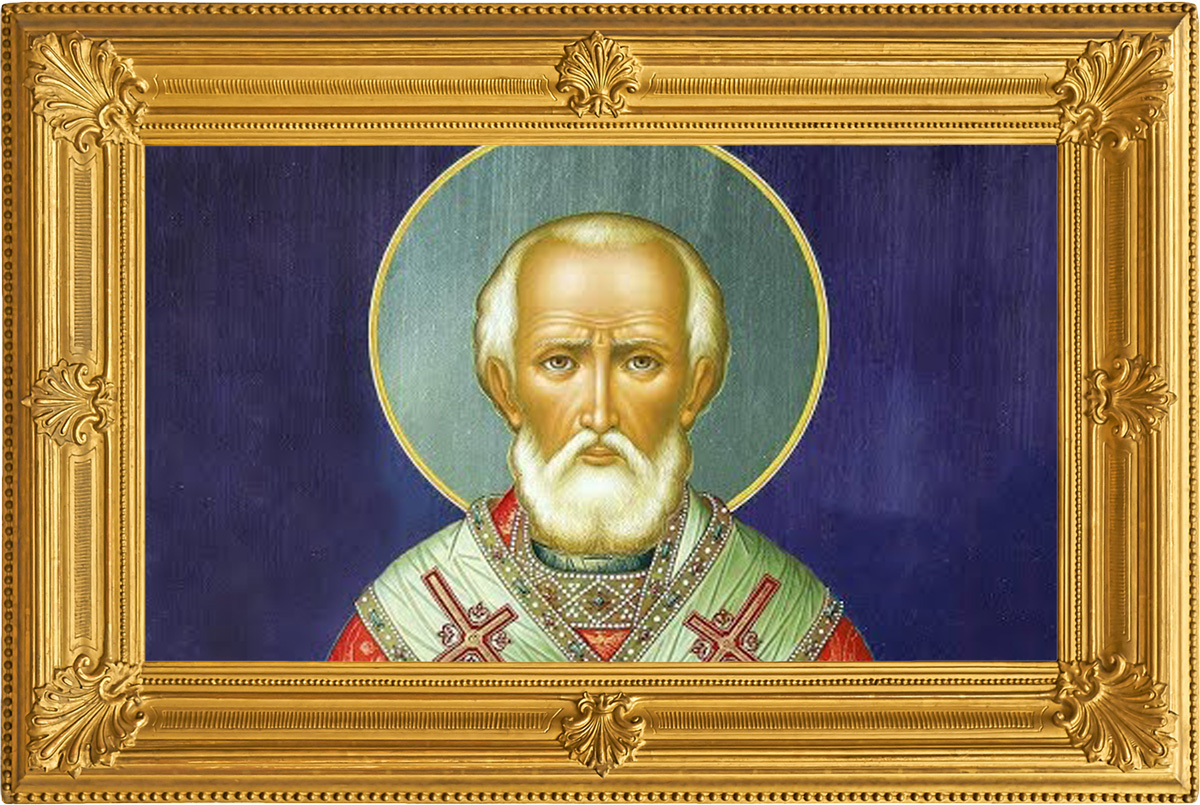
That’s right: Santa Claus is one of the patron saints of brewers. Why, you ask? Because during a famine an evil butcher killed three children and tried to sell them as pork and Jolly Old St. Nick found them in a pickling barrel and resurrected them, but medieval stained-glass depictions of this story that featured Saint Nicholas with a large wooden keg were misinterpreted by uneducated laypeople who then assumed he had something to do with beer and mistakenly made him a patron saint of brewers and the church just went with it. Obviously.


